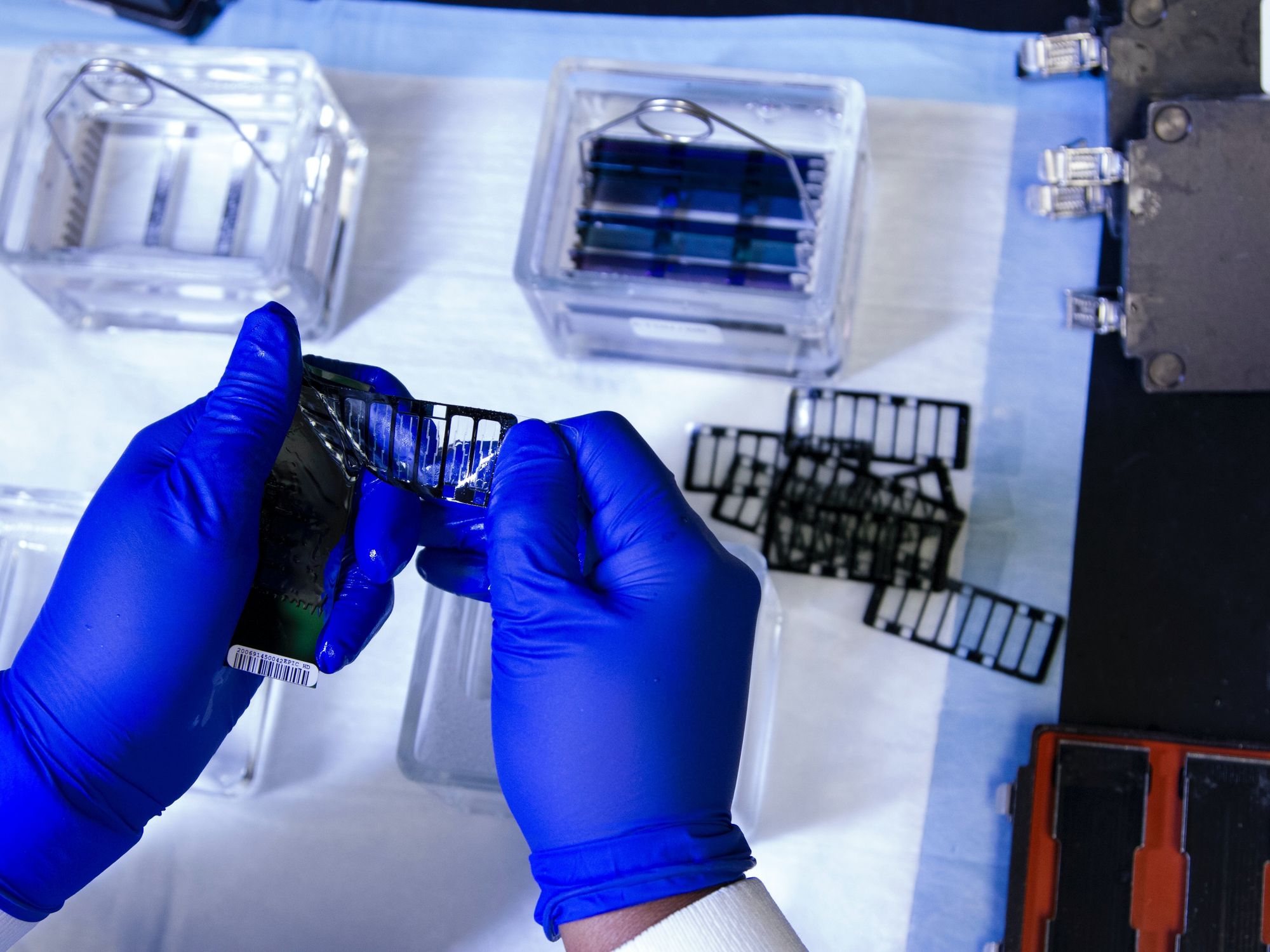Can LA County Get Local Biotech Startups to Stick Around?
Rachel Uranga is dot.LA's Managing Editor, News. She is a former Mexico-based market correspondent at Reuters and has worked for several Southern California news outlets, including the Los Angeles Business Journal and the Los Angeles Daily News. She has covered everything from IPOs to immigration. Uranga is a graduate of the Columbia School of Journalism and California State University Northridge. A Los Angeles native, she lives with her husband, son and their felines.

Los Angeles County wants to be a biotech powerhouse.
Last week it committed a $15 million matching fund loan to MarsBio, a venture fund that will invest in bioscience startups.
"It's a big signal to the community that L.A. values innovation here," said Llewellyn Cox, general partner at MarsBioVC. "This is a different way of doing economic development. It's much more cost effective, making surgical efforts to spur industry,"
The funds are part of a wider strategy by the county to invest in the sector with the aim of creating more jobs.
Next year, the 20,000 square foot LABioSpace is set to open. Funded through the county, federal funds and private donation the incubator will house lab space dedicated to bioscience research and collaboration and is designed to house up to 25 companies. And another "innovation hub" backed by the county and private funds called BioScienceLA is expected to open next year in Culver City.
Although biotech generates billions of dollars for the region, it's taken a backseat to Hollywood. Yet, their ambitions are soaring and include curing cancer, treating coronavirus and ending debilitating diseases.
Dave Whelan, executive director of the nonprofit BioScienceLA that aims to foster the next generation of startups, said he hopes it will inspire other entities to invest.
"This is a long in the works, overdue show of broad support from the public sector to invest in early stage startups," he said.
Cox said the county's efforts were part of the reason MarsBio was born. A few years ago, when the county released a request for a bid, he was working on creating more lab space for entrepreneurs and was struck by the dearth of resources for biotech startups.
"It struck me that every corner you turn, the advice was go to San Francisco," he said. "It drove me mad. There is no reason the county on the scale of Los Angeles should ever have to outsource talent."
But they were. He recalls attending a conference several years ago when then USC's president Max Nikias bragged about 25 new biotech companies created at the school. The only problem was that none of them stayed in Los Angeles.
Losing those company meant losing billions of dollars and talent. But there's also signs that a new generation will stay.
L.A. researchers attracted $1 billion in research funds from the National Institute of Health last year, more than any county in California, according to Biocom, an industry research group. The year before, a former Amgen executive and Kleiner Perkins partner launched Westlake Village BioPartners, a new venture firm with a $320 million fund focused on investing in life sciences.
"This investment fund is part of our deliberate strategy to grow the L.A. County bioscience eco-system of start-ups and tech entrepreneurs so that we're at the forefront of job growth and innovation," said Los Angeles County Supervisor Mark Ridley-Thomas.
"As the home to a number of world-class universities, and one of the most diverse and talented populations in the world, bioscience is a critical component of Los Angeles County's future. We expect it to outpace all other sectors even during this current crisis as it did during the Great Recession," he added.
- Investors and Health Tech on the Front Lines of the Pandemic - dot.LA ›
- Is Telemedicine At a Tipping Point? L.A. Doctors Hope So - dot.LA ›
- Wavemaker 360 Health Announces $100 Million Fund Aimed at ... ›
- The COVID-19 Crisis is Creating a New Biotech Culture in L.A. - dot.LA ›
- Quantgene Aims to Detect Cancers Far Earlier Using Data - dot.LA ›
- Meet 3 Early Stage Science Startups at First Look's Showcase - dot.LA ›
- Cutting Edge Science Startups to Watch - dot.LA ›
- Westlake Village BioPartners Raises $500M - dot.LA ›
- Sci Find Is a New AI-Based Tool Is for Biotech Startups - dot.LA ›
- First Look Features Life Science Startups from SoCal Schools - dot.LA ›
- Lab Launch Will Open a New Facility in LA's Atwater Village - dot.LA ›
- Biotech in Los Angeles Might Soon Get Its Own Bioscience Hub - dot.LA ›
- Is the Golden Age of Biotech Funding Over? - dot.LA ›
- Is the Golden Age of Biotech Funding Over? - dot.LA ›
Rachel Uranga is dot.LA's Managing Editor, News. She is a former Mexico-based market correspondent at Reuters and has worked for several Southern California news outlets, including the Los Angeles Business Journal and the Los Angeles Daily News. She has covered everything from IPOs to immigration. Uranga is a graduate of the Columbia School of Journalism and California State University Northridge. A Los Angeles native, she lives with her husband, son and their felines.





 Image Source: Skyryse
Image Source: Skyryse